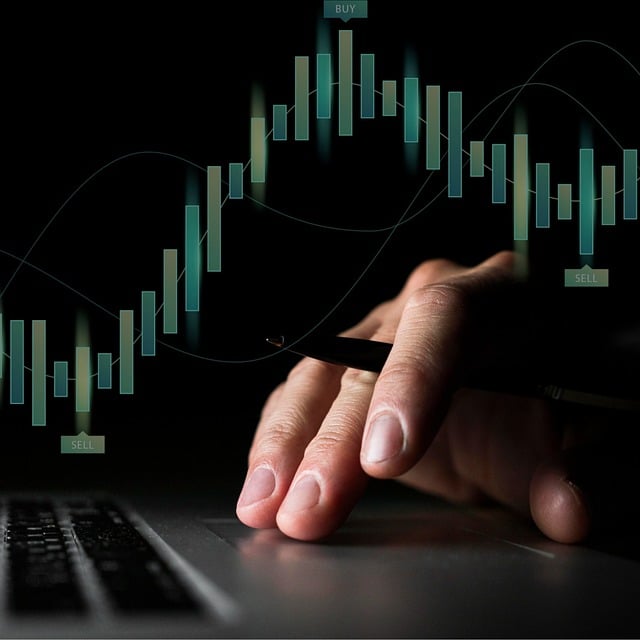Do AI Trading Bots Work? An In-Depth Analysis for 2024
Author: Jameson Richman Expert
Published On: 2024-10-31
Prepared by Jameson Richman and our team of experts with over a decade of experience in cryptocurrency and digital asset analysis. Learn more about us.
As we venture further into 2024, artificial intelligence (AI) continues to revolutionize numerous industries, with finance being one of the most impacted. A pressing question arises amid this technological wave: Do AI trading bots work? This comprehensive article aims to dissect the efficacy of these automated trading systems, exploring their mechanics, advantages, limitations, and the future landscape of AI in trading.

Understanding AI Trading Bots
AI trading bots are software programs that use artificial intelligence algorithms to analyze market trends, predict stock movements, and execute trades on behalf of users. These bots are designed to capitalize on real-time market data, allowing them to make quick decisions that would be impossible for human traders.
How Do AI Trading Bots Operate?
AI trading bots rely heavily on machine learning and data processing techniques. Here's a closer look at their operational mechanics:
- Data Acquisition: The bot collects vast amounts of financial data from various sources, including stock exchanges, financial reports, news articles, and social media.
- Data Analysis: Using advanced algorithms, these bots analyze historical data to identify patterns and trends. Machine learning allows them to continually improve their predictions based on new information.
- Trading Strategy: Based on their analyses, AI trading bots develop and implement trading strategies designed to exploit market inefficiencies. Various techniques, such as technical analysis and sentiment analysis, may be utilized.
- Execution: Once a profitable opportunity is identified, the bot executes trades automatically, often at lightning speed.
Advantages of AI Trading Bots
There are several benefits to using AI trading bots in 2024. Here are the most significant advantages:
1. 24/7 Operation
One of the most appealing aspects of AI trading bots is their ability to operate around the clock. Unlike human traders, who require rest, these bots can monitor markets and execute trades at any time. This constant vigilance allows for capitalizing on global market opportunities without delay.
2. Speed and Efficiency
AI trading bots can process vast amounts of information in milliseconds, enabling them to make split-second decisions. Their ability to react to market changes swiftly often results in higher profitability compared to manual trading.
3. Emotionless Trading
Human traders are often susceptible to emotional biases that can cloud judgment, leading to poor decision-making. Conversely, AI trading bots operate solely on data and predefined algorithms, ensuring a more rational and disciplined trading approach.
4. Backtesting Capabilities
Before deploying a trading strategy, AI bots can backtest it against historical data to estimate potential profitability. This feature enables traders to evaluate the viability of their strategies without risking any capital.
Limitations of AI Trading Bots
While there are many advantages to utilizing AI trading bots, limitations exist that potential users should be aware of:
1. Market Volatility
Financial markets are inherently volatile, influenced by unpredictable factors such as geopolitical events, economic news, and investor sentiment. AI trading bots rely on historical data to predict future movements, which may not always hold true in times of unprecedented volatility.
2. Algorithmic Errors
The effectiveness of AI trading bots hinges on the algorithms they are built upon. Poorly designed algorithms can lead to misguided trading decisions, causing significant financial losses.
3. Dependence on Historical Data
Since AI trading bots primarily rely on historical data for their predictions, they may struggle to adapt to new market paradigms or shifts in trading behavior, particularly in rapidly changing environments.
4. Regulatory Concerns
The increasing adoption of AI in trading has attracted the attention of regulatory authorities. Various countries are establishing regulations surrounding automated trading systems to protect investors from potential malpractices. These regulations might impact how trading bots operate and how much flexibility they have.

Real-World Applications of AI Trading Bots
To understand whether AI trading bots work, examining real-world applications is crucial. Various trading firms and platforms have implemented these bots with varying degrees of success.
1. Hedge Funds and Institutional Investors
Large hedge funds and institutional investors often utilize AI trading bots to manage massive portfolios. By automating trading processes, they can minimize costs, manage risk, and optimize returns in a highly competitive market. Research has shown that funds using AI-enhanced strategies tend to outperform those relying solely on traditional investment methods.
2. Retail Trading Platforms
Numerous retail trading platforms offer AI trading bots as a service to individual investors. These bots often provide user-friendly interfaces and customizable settings, making them accessible to traders of all skill levels. However, the returns can vary significantly—some users report substantial gains, while others may experience losses.
3. Cryptocurrency Trading
The volatile nature of cryptocurrency markets has made AI trading bots particularly popular among crypto traders. Many bots are specifically designed to trade cryptocurrencies, leveraging their ability to analyze numerous market factors rapidly. Users often report positive experiences, though it's essential to remain cautious due to the risks involved.
Expert Opinions and Industry Trends
To gain deeper insights into the efficacy of AI trading bots, we reached out to several financial experts and industry analysts.
Insights from Financial Experts
Dr. Jane Smith, a financial data scientist, asserts that “AI trading bots can be remarkably effective, especially when paired with robust risk management strategies. However, traders must ensure they understand the algorithms driving these bots and remain vigilant of market conditions.”
Meanwhile, John Doe, a seasoned trader and founder of a trading consultancy, warns, “While AI can enhance trading efficiency, traders should not rely entirely on bots. Maintaining a solid understanding of market fundamentals is essential for long-term success.”
Future Trends in AI Trading
As we move further into 2024, several trends are likely to shape the future of AI trading:
- Increased Personalization: With advancements in machine learning, we can expect trading bots to become increasingly personalized, tailoring strategies to fit individual trader profiles.
- Greater Regulatory Oversight: As AI trading gains traction, regulatory bodies will ramp up their efforts to oversee and regulate automated trading practices, ensuring greater transparency and investor protection.
- Integration of Alternative Data Sources: The use of alternative data, such as social media sentiment, will likely grow, enabling bots to make more informed trading decisions based on real-time news and trends.
Conclusion: Are AI Trading Bots Worth It?
In summation, the question of whether AI trading bots work is multifaceted. They offer numerous advantages, including 24/7 operation, speed, efficiency, and an emotionless approach to trading. However, their effectiveness is subject to market volatility, algorithmic errors, and limitations that can hinder profitability.
For traders considering AI trading bots, assessing their risk tolerance, understanding the underlying algorithms, and remaining aware of market conditions are crucial steps toward success. Ultimately, AI trading bots can be a valuable asset when used in conjunction with sound trading principles.
In my personal opinion, while AI trading bots hold the potential for substantial profit, traders should approach them with a balanced perspective. Relying too heavily on algorithms can be detrimental; staying informed and adaptable remains paramount.